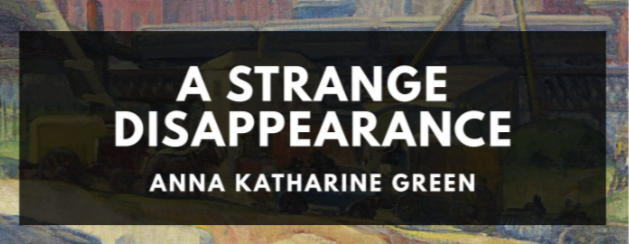CHAPTER XVIII — A Strange Disappearance
byCHAPTER XVIII – A Strange Disappearance begins amid an air thick with tension and consequence, where justice collides with personal loyalty. As authorities conclude a decisive operation, the capture of Luttra’s father and brother brings not closure, but a deeper ripple of emotional disruption. The reader is not simply witnessing the fall of two criminals; instead, we see the fracture of a family tree where each branch bears its own scars. Reactions to the arrest are not uniform. While justice is served, Luttra is left to absorb the shame of association—haunted more by emotional ties than by the law. Her strength lies not in denial, but in a willingness to carry burdens others would swiftly discard. And as Mr. Blake enters the scene, the story takes a personal turn, driven not by suspense but by the ache of love tested by legacy.
The conversation between Luttra and Mr. Blake holds more weight than any courtroom drama. Her voice is steady but her eyes betray an inner storm. She does not reject him out of pride but out of protection—for his reputation, for their future, and for what little control she has left. Mr. Blake, still overwhelmed by love, cannot understand why she distances herself when the hardest part appears to be over. To him, love should bridge the gap left by scandal. But Luttra sees the future differently. She imagines whispered rumors, social exclusion, and a life lived in the shadow of her relatives’ crimes. Her withdrawal is not born of weakness but forged in the fire of selflessness.
As the discussion deepens, Mr. Blake pleads with a sincerity that should melt any hesitation. Yet Luttra stands unmoved—not coldly, but with quiet determination. She views their marriage as a bond that, though built on affection, must also withstand scrutiny from society. She does not want to be the cause of Mr. Blake’s fall from grace. To her, their love, while genuine, must not come at the cost of his position and dignity. This is not a romantic refusal but a moral one. Her sacrifice is quietly heroic—choosing solitude over shared disgrace, even when the choice tears her apart.
The backdrop of societal pressure in the chapter is a sharp reminder of how external judgment can poison even the purest of relationships. Luttra knows that love alone cannot change the public’s perception. At the time this story was set, a woman’s family name still carried weight that could determine her place in society. Marrying into disgrace, even unintentionally, often meant losing one’s status or respect. And so, despite the love in her heart, Luttra chooses to preserve the one thing she believes she can still protect—Mr. Blake’s future. Her rejection becomes an act of love in itself, one that values the other’s wellbeing more than shared happiness.
In this chapter, readers are drawn into a narrative that mirrors many real-life sacrifices made by those entangled in complicated legacies. The emotional authenticity of Luttra’s choice feels timeless. Modern readers might relate this to stories where individuals walk away not due to a lack of emotion, but because they foresee a life of struggle that would harm the one they love. This dynamic is still present today—in relationships hindered by societal expectations, career ambitions, or cultural norms. Luttra’s decision resonates not only because of the era’s rigidity but because of the universality of her struggle. Her voice may be quiet, but it echoes loudly with strength and clarity.
What makes this chapter particularly moving is how it paints duty and love not as opposites, but as companions in conflict. Luttra embodies both—loving Mr. Blake deeply while upholding a moral code that demands she not be the reason for his hardship. Mr. Blake’s frustration is understandable, but his failure to convince her only emphasizes the depth of her convictions. As the conversation fades into silence, the reader is left to imagine the weight each character carries—the burden of choices made not out of fear, but of honor. It’s a sobering reminder that some of the strongest love stories are the ones where the lovers walk away.
By the end, the chapter leaves an emotional imprint rather than a dramatic cliffhanger. There is no grand gesture, no last-minute reversal—just a quiet heartbreak shared between two people who care too much to be careless. The themes of love and duty are not simply described—they are lived through the actions and silences of the characters. It’s this authenticity that grounds the narrative and invites readers to reflect on their own values. What would we choose if faced with such a decision? And would we, like Luttra, have the courage to walk alone, for love’s sake?

